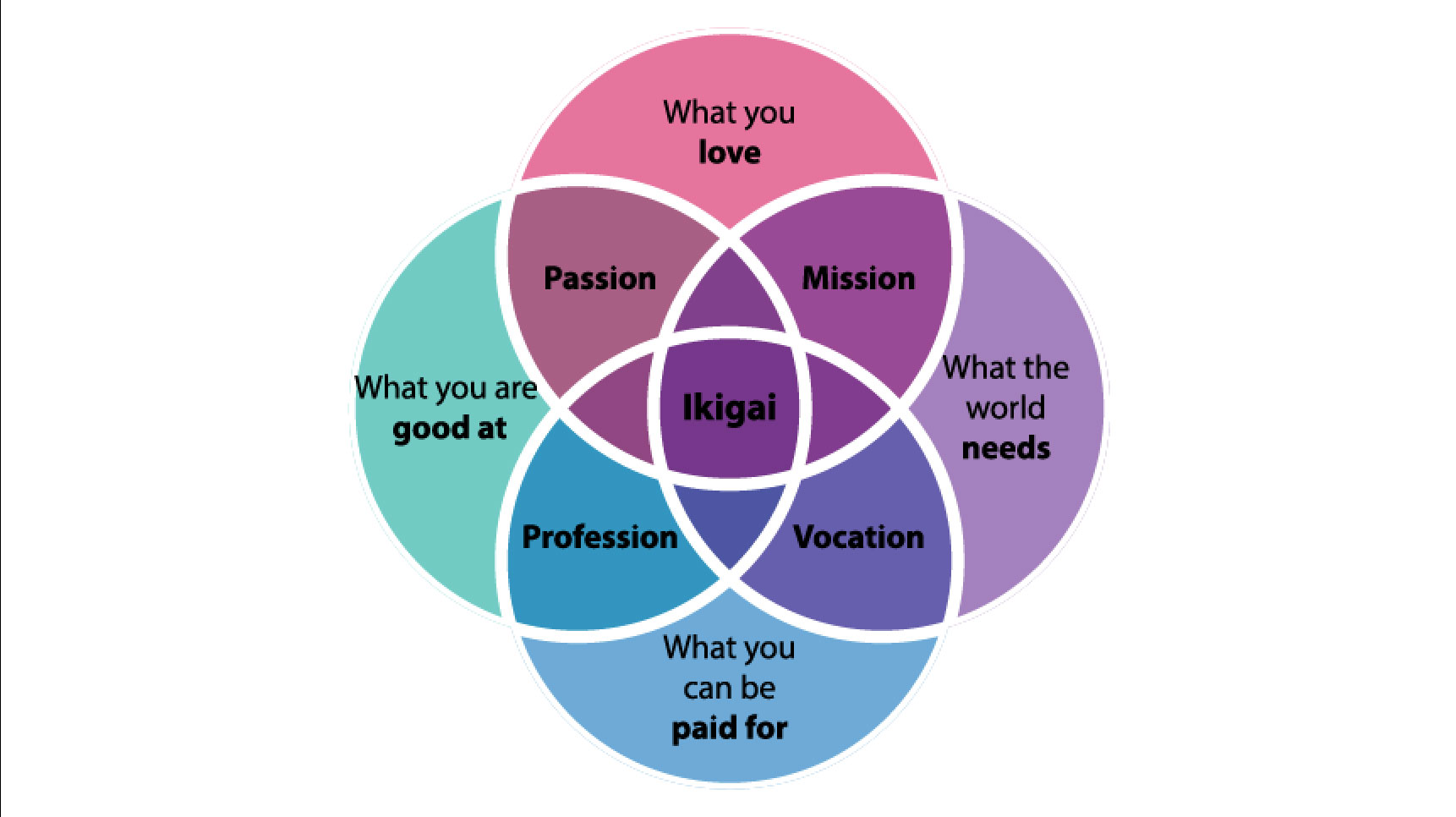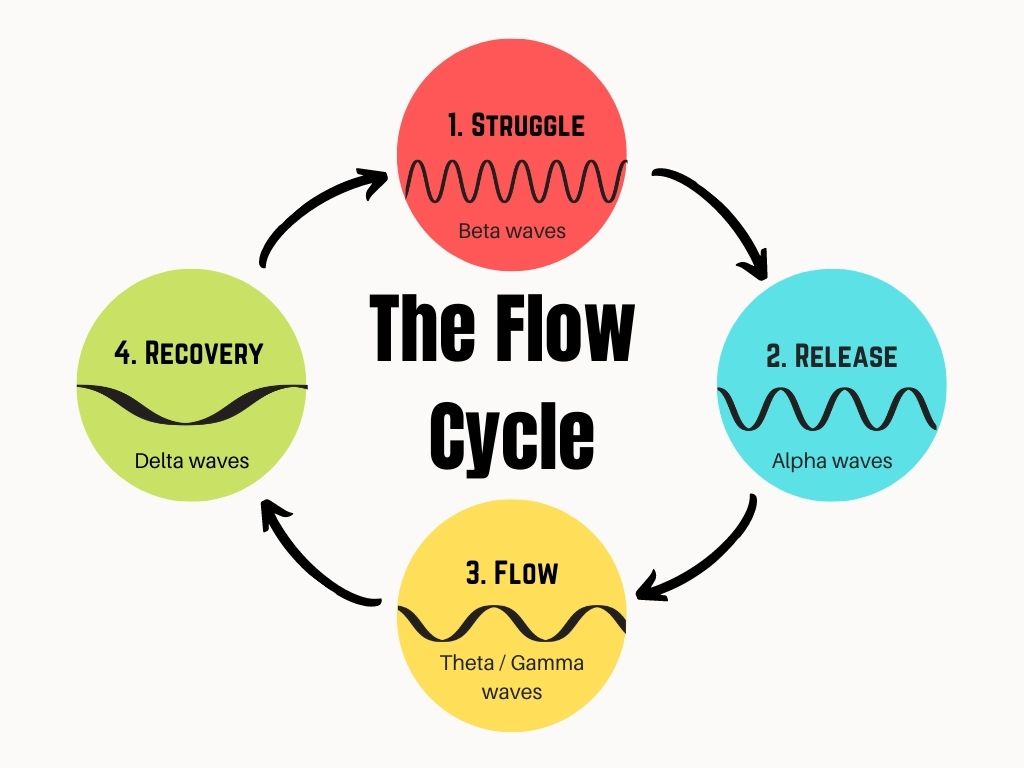Some people are fortunate enough to find a job or start a business where they find their sweet spot of focus where passion meets purpose.
They earn a living doing what they love, and the world looks upon them with fondness. However, I have a feeling there are a lot of people that don’t fit such a description.
Over the years many people have contemplated the perfect fit—somewhere our passions, talents and a sense of purpose align together into a mission-driven life where we solve a meaningful problem in the world.
For those of the Japanese island of Okinawa, they call such an ideal Ikigai, meaning your reason for being.
Ikigai takes into consideration four factors: what you love, what you’re good at, what the world needs, and what you can be paid for.
I like to think of your Ikigai as the sweet spot of focus where passion meets purpose or what’s called your “zone of genius.”

Finding The Work You Enjoy
Research suggests millennials expect to make a difference through their work and are often willing to take a 15% pay cut for work that matches their values.
Rather than simply searching for a decent job with decent pay, we’re becoming more concerned with the world at large, more aware of our impact, and more driven to leave a positive mark.
But such a desire isn’t easy to realize. Just as blindly chasing money won’t lead to a sense of fulfillment, following your passions won’t always keep a roof over your head or food on the table.
At the same time, we’re making the world a better place, we have to ensure we can support ourselves. Making this work is the hard part.
Finding Your Ikigai: The Sweet Spot of Focus
The obvious first move towards finding your own Ikigai is to sit down and think about the four factors—what do you love? What are you good at? What does the world need? What can you get paid for?
Consider what activities bring you joy, but also what features of the world as it is today spark a little concern, what aspects of life you think need working on.
Give some time to the process, keep a notepad handy during the day in case you notice or think of something new. You don’t have to figure it all out in a day.
Once you have some ideas, it’s time to look for patterns and connections among them. Do any themes emerge? If you draw the Ikigai Venn diagram from above and start placing ideas within the different circles, do any of them find their way into the center? Is there any way that your passions and skills could be applied to those things you want to see improve?
If nothing seems to fit, don’t fret about it. Take some time to explore other interests or curiosities and get a broader range of experiences, talk to people and get a sense of what their values or pain points are.
The more we learn, we better we’ll understand where our sensibilities are and how we can best apply ourselves.
Creating A Meaningful Life of Passion and Purpose
There’s a decent chance that Ikigai could add years to your life. A sense of purpose has been linked to lower mortality rates.
One of the key ingredients here is the lowering of stress—those with a purpose are able to push themselves through obstacles and difficult situations without feeling like there’s something missing or that our effort is misplaced.
It’s easy to imagine how finding something you love doing and that supports you would make for a more enjoyable lifestyle. No worrying about how to pay the bills, no putting effort into something we don’t find satisfying, no anxious soul searching for something better.
But if we have yet to find that purpose, it’s important to realize that it’s a process that takes time, and that putting too much pressure on ourselves will achieve the opposite result. Life can change quickly, Ikigai is best seen as a process more than a destination.
On that journey, we need to be resilient. Even if we consider our purpose to be the act of searching for a purpose, we should be able to find joy or comfort in the daily habits and routines that we use to get there.
As Viktor Frankl said, “everything can be taken from a man but one thing: the last of the human freedoms—to choose one’s attitude in any given set of circumstances, to choose one’s own way.”
Want to figure out your Ikigai? Get my mini-course The Ikigai Method and start doing the contemplative work necessary to find your sweet spot of focus where passion meets purpose.
- The 10 Best Pomodoro Timer Apps For Remote Workers - April 11, 2025
- Hacking The Flow Cycle: Brainwaves, Creativity and Flow States - April 11, 2025
- 100 Best iPhone Education Apps For Self-Directed Learning - April 10, 2025






 This website uses cookies to improve your web experience.
This website uses cookies to improve your web experience.